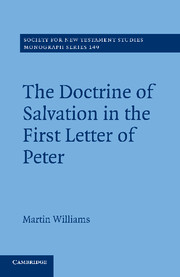7 - Divine election
from Part III - Intercatholic conversation
Published online by Cambridge University Press: 05 November 2011
Summary
Introduction
It is appropriate that we begin our theological discussions with the doctrine of election, since it is chronologically the beginning of God’s personal dealing with believers in grace. Therefore it is rightly considered the first step in God’s sovereign and gracious plan in bringing salvation to believers individually. As such the doctrine of election calls attention to the gracious initiative of God in the plan of salvation. We experience salvation, insists Grenz, ‘because the triune God, who is relational in his own nature, chooses to enter into relationship with us his creatures. He calls sinful humans to share in the divine fellowship (2 Pet. 1:4). This central dimension of God’s eternal intention leads us to the concept of election.’ It is thus no wonder that Peter begins his letter – a letter which is rich in salvation language – with a bold declaration of the believers’ eternal election (1:1–2) cast in a Trinitarian framework that presupposes the electing initiative of God the Father (1:2a), the consecrating action of God the Spirit (1:2b), and the atoning work of God the Son (1:2c).
But what does election signify? As we seek to bring 1 Peter into conversation with the concerns of systematic theology, the following important issues relating to the doctrine of election surface for examination. These issues include: What is the relationship between the doctrine of the Trinity and the doctrine of election? What is the relationship between election and ethics? Is election conditional (i.e., based on God’s foresight of human faith) or unconditional (based entirely on God’s sovereign will and good pleasure)? What is the role of Jesus Christ in the divine programme of election? (or What does it mean to say that election took place ‘in Christ’?) Is election to salvation individual, corporate, or both? Is election single (unto salvation), double (unto salvation and damnation), or something else? If it is double, does God stand behind the decree of election to salvation in the same way he stands behind the decree of election to damnation (i.e., are the two decrees symmetrical)? With these questions in mind we begin with the role of the Trinity in election.
- Type
- Chapter
- Information
- The Doctrine of Salvation in the First Letter of Peter , pp. 229 - 253Publisher: Cambridge University PressPrint publication year: 2011



